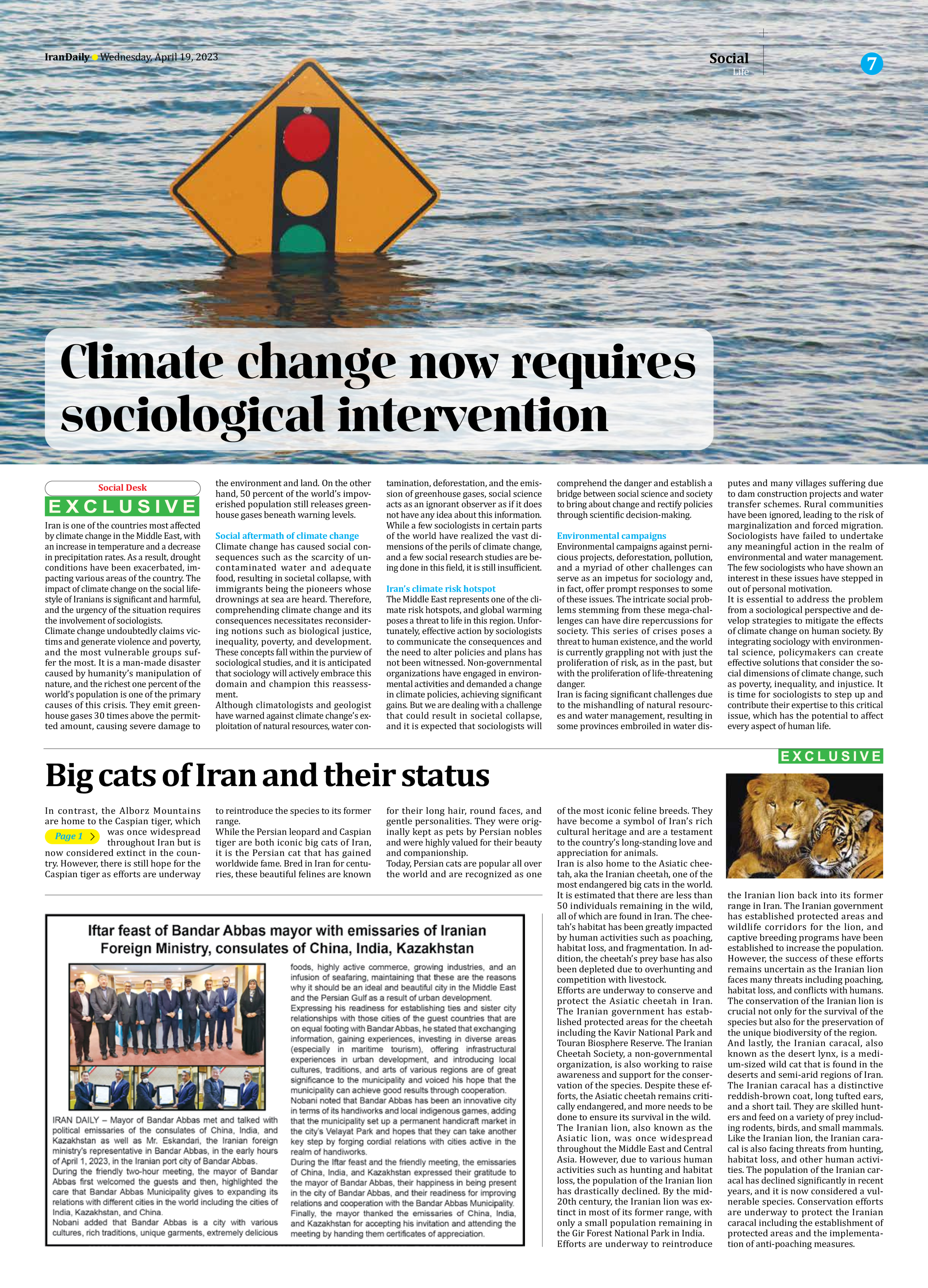
Climate change now requires sociological intervention
Iran is one of the countries most affected by climate change in the Middle East, with an increase in temperature and a decrease in precipitation rates. As a result, drought conditions have been exacerbated, impacting various areas of the country. The impact of climate change on the social lifestyle of Iranians is significant and harmful, and the urgency of the situation requires the involvement of sociologists.
Climate change undoubtedly claims victims and generate violence and poverty, and the most vulnerable groups suffer the most. It is a man-made disaster caused by humanity’s manipulation of nature, and the richest one percent of the world’s population is one of the primary causes of this crisis. They emit greenhouse gases 30 times above the permitted amount, causing severe damage to the environment and land. On the other hand, 50 percent of the world’s impoverished population still releases greenhouse gases beneath warning levels.
Social aftermath of climate change
Climate change has caused social consequences such as the scarcity of uncontaminated water and adequate food, resulting in societal collapse, with immigrants being the pioneers whose drownings at sea are heard. Therefore, comprehending climate change and its consequences necessitates reconsidering notions such as biological justice, inequality, poverty, and development. These concepts fall within the purview of sociological studies, and it is anticipated that sociology will actively embrace this domain and champion this reassessment.
Although climatologists and geologist have warned against climate change’s exploitation of natural resources, water contamination, deforestation, and the emission of greenhouse gases, social science acts as an ignorant observer as if it does not have any idea about this information.
While a few sociologists in certain parts of the world have realized the vast dimensions of the perils of climate change, and a few social research studies are being done in this field, it is still insufficient.
Iran’s climate risk hotspot
The Middle East represents one of the climate risk hotspots, and global warming poses a threat to life in this region. Unfortunately, effective action by sociologists to communicate the consequences and the need to alter policies and plans has not been witnessed. Non-governmental organizations have engaged in environmental activities and demanded a change in climate policies, achieving significant gains. But we are dealing with a challenge that could result in societal collapse, and it is expected that sociologists will comprehend the danger and establish a bridge between social science and society to bring about change and rectify policies through scientific decision-making.
Environmental campaigns
Environmental campaigns against pernicious projects, deforestation, pollution, and a myriad of other challenges can serve as an impetus for sociology and, in fact, offer prompt responses to some of these issues. The intricate social problems stemming from these mega-challenges can have dire repercussions for society. This series of crises poses a threat to human existence, and the world is currently grappling not with just the proliferation of risk, as in the past, but with the proliferation of life-threatening danger.
Iran is facing significant challenges due to the mishandling of natural resources and water management, resulting in some provinces embroiled in water disputes and many villages suffering due to dam construction projects and water transfer schemes. Rural communities have been ignored, leading to the risk of marginalization and forced migration. Sociologists have failed to undertake any meaningful action in the realm of environmental and water management. The few sociologists who have shown an interest in these issues have stepped in out of personal motivation.
It is essential to address the problem from a sociological perspective and develop strategies to mitigate the effects of climate change on human society. By integrating sociology with environmental science, policymakers can create effective solutions that consider the social dimensions of climate change, such as poverty, inequality, and injustice. It is time for sociologists to step up and contribute their expertise to this critical issue, which has the potential to affect every aspect of human life.







